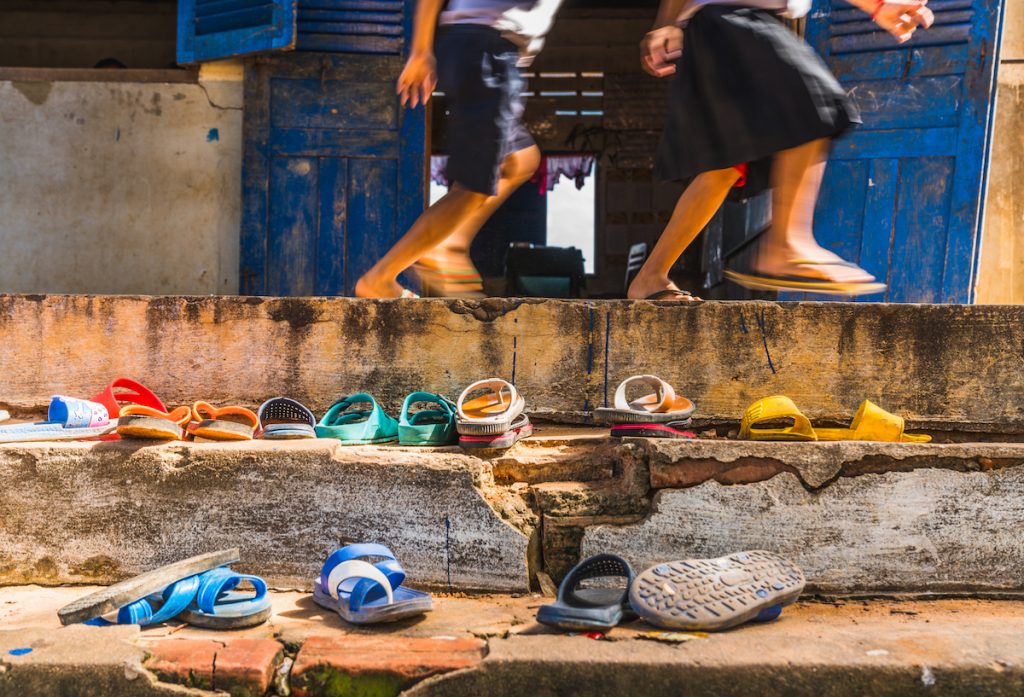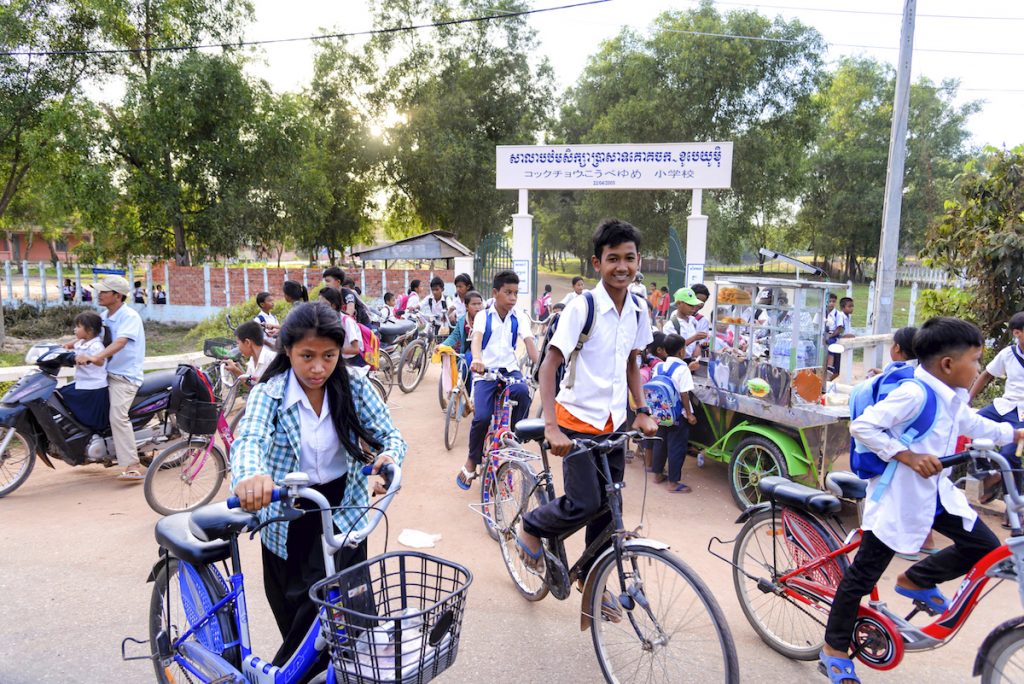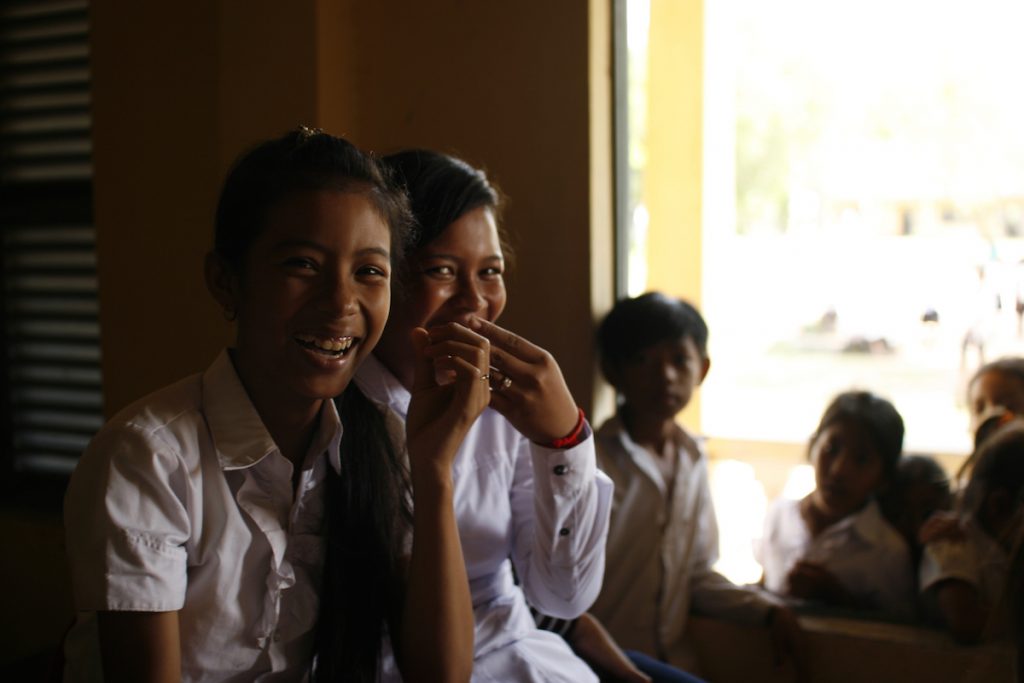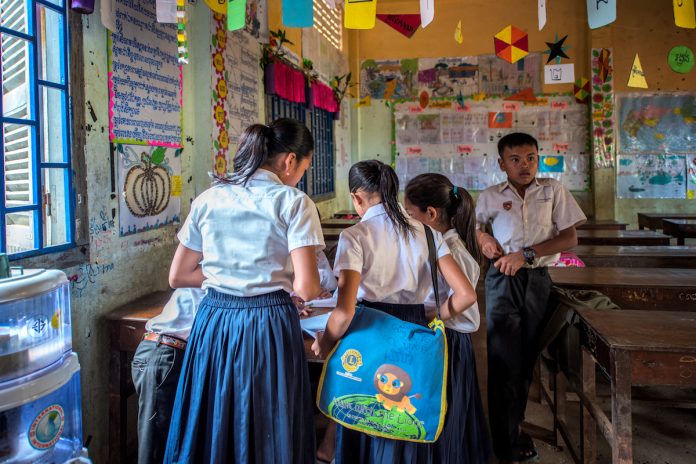FOR the past 3 months But Sreyneng’s daily schedule has been very hectic. As a restaurant owner she constantly needs to keep an eye on her business, while as a family member she needs to look after her ill mother and an ailing sister. And now that Cambodia’s schools are closed, she and her husband need to ensure their four children spend enough time on their studies.
“It’s very messy,” Sreyneng said during a short break. “We do our best to keep it all together, but it’s difficult. Teachers are much better at teaching kids than me and my husband, and we are busy with our business.”
With only a few new cases recorded in the past month, the new coronavirus seems to be under control in Cambodia. In recent weeks the Southeast Asian nation has lifted some of the restrictions established to suppress the outbreak, including an entry ban on travelers from the United States, Iran, Italy, Germany, Spain and France.
But schools have not been are allowed to reopen since they were first shut on March 14 as an anti-pandemic measure.
Cambodia’s Ministry of Education has said schools need to remain closed to prevent a second wave of coronavirus infections. According to the Phnom Penh Post the ministry has requested Prime Minister Hun Sen to not reopen the schools before November, the start of the new academic year. Until that time all education in Cambodia will take place online, via TV or through worksheets at home.
Parents and experts are worried that the measures will lead to a lower quality of education and a significant dropout of students. They also say that studying online or through the TV is often not possible for many Cambodians. Moreover, there are millions of people in the country, especially those in rural areas, who don’t have access to the internet. Many also don’t have a TV.
Sreyneng knows all about it. Her children are 17, 14, 10 and 7 years of age. Normally each of them goes to a nearby public school to study.
“Now my oldest often studies together with classmates while our second child learns by himself with a smartphone, but we constantly need to keep an eye on him, to make sure that he’s studying and not playing a game,” she said.
For her two youngest sons Sreyneng or her husband need to go to the boy’s school to pick up their homework and learning instructions.
“We have to teach them ourselves. That’s not easy. We take a lot of effort because we want them to get good education, but sometimes we are too busy with our own work,” she said.

A recent study by the Cambodian NGO Social Action for Community and Development showed that Sreyneng is far from being alone in her struggle. According to the study, in which 187 people participated, about 80 percent of the participants understand that e-learning is important. But a lot of them mentioned serious challenges, such as additional expenses to pay for an internet connection or to buy more phones, computers or tablets.
Students who took part in the study said that learning online is stressful and frustrating because they can’t ask their teachers questions directly and they are unable to meet their classmates. Parents said they are frustrated because it’s difficult to combine their jobs with helping their children.
Some three months ago UNESCO, the U.N.-organization for education, science and culture, said that school closures are problematic for a number of reasons. One of them being that it can lead to inconveniences and lesser economic productivity because parents suddenly have to balance their work obligations with childcare. Closures also lead to educational inequalities.
“Economically advantaged families tend to have higher levels of education and more resources to fill learning gaps and provide enrichment activities to children who cannot attend school”, UNESCO said in a press statement.
In Banteay Meanchey, a province in the northwest of Cambodia, the teachers of the Xavier Jesuit School are struggling with the new reality of distance learning.
“We received a letter that the schools will be closed until Nov. 1, so we needed to think about e-learning. It’s been quite challenging for us,” the school’s director Father Quyen Vu told LiCAS.news.
Father Quyen said that the school, which has 669 students, broadcasts live classes through Zoom and shares recordings of the teachings via the school’s website and YouTube.
Because the province has a lot of poor families who don’t have access to computers or internet, the school provides worksheets and homework to students who can’t study online.
“We deliver these to those residing far from the schools. Students who live near our school come and collect them,” he said.
But even with these efforts, the school can’t reach everyone, Father Quyen said. “Maybe we now reach 65 percent of the students,” he said.
Father Quyen does however believe keeping learning institutes closed is the right approach in dealing with the new coronavirus. With the large number of students at many Cambodian schools it’s impossible to follow social distancing guidelines, he said.
“There’s no space for social distancing. If one student is infected, others will get infected easily, and teachers as well,” he said. “For the sake of the students I think it’s wise to keep them closed.”

But some think differently, believing the quality of children’s education will suffer too much if schools continue to be closed.
Rong Chhun, the president of the Cambodian Independent Teacher Association, said problems especially occur for students at public schools.
“Many of their parents can’t afford to have a smartphone or an electronic device. They can’t access the internet,” Chhun said. “Their parents need to go to work to earn an income. When parents can’t stay at home to assist them, their children will learn nothing.”
Chhun worries students dropping out of school due to the challenges of maintaining an education when schools are closed.
“Recently the Ministry of Health decided to reopen museums and to lift a travel ban, but they are still afraid to reopen the schools. I think it should be the other way around,” Chhun said.
“Schools need to reopen and that travel ban should continue. If schools remain closed, students will lose track of their study and are no longer interested in learning.”
For 17-year-old But Soneat, the oldest daughter of restaurant owner But Sreyneng, there is no other choice other than to study outside her school.
“The teachers make video’s and upload them to Telegram or YouTube. Sometimes they make pictures and send them to us,” she said.
“But this way we don’t interact with a teacher. If there’s something that I don’t understand, the only thing I can do is call him.”
Soneat will have exams this year. Even though it’s difficult, she’s determined to continue learning and to start a business management course next year.
But not everyone has the same commitment anymore. “I think that less than half of my classmates still participates the classes. The others don’t,” she said.










